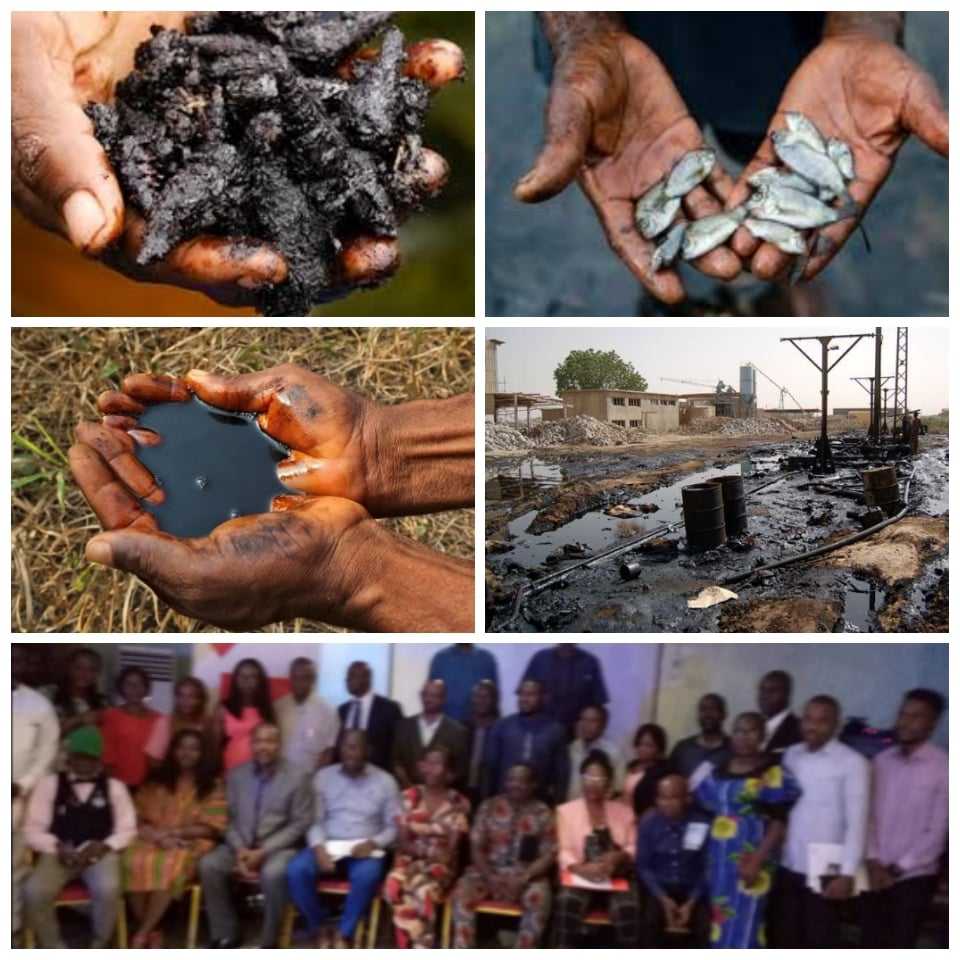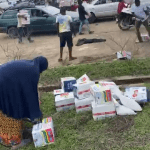Civil societies organisation converged in the garden city of Port Harcourt to thinker on lasting solution to SHELL divestments plan without clear blueprint on who cleans the polluted environment where it operated for decades.
The event put together by a non-governmental organisation, Stakeholders Democracy Network (SDN) said it is challenging the ongoing divestment process of Shell Petroleum Company Limited (SPDCL) at the British parliament, stating that there is a massive transparency gap around the issues of funding for decommissioning.
SDN revealed that it was worried that Shell selling off it’s onshore assets was going to abandon the heavily polluted communities who were yet to get justice for their damaged environment, livelihoods, and negatively impacted health of the people. while also noting that the implications of leaving behind petroleum contaminated Rivers, Streams and large area of polluted lands will have a widespread devastation the livelihood of millions of people living in the Niger Delta area
Recall that Shell recently announced that it has concluded a deal to sell its Nigerian onshore subsidiary SPDC to a group of five Nigerian domestic oil companies, and focus on offshore production.
The SDN in new report by Centre for Research on Multinational Corporation (SOMO) launched on 28th of February 2024 on the divestment of the international oil company titled, Selling out Nigeria: Shell’s Irresponsible Divestment. is leaving behind a legacy of oil pollution.
Speaking at the event, the Country Director of Stakeholders Democracy Network (SDN), Mrs. Florence Ibok-Abasi on Wednesday said Shell should not be allowed to walk out of the legacies of pollution it has created as a result of its decades of operations without addressing them.
Ibok-Abasi said, “We believe that it is important that the media amplifies the issues that are currently surrounding the divestment process, specifically the divestment of onshore assets by multinationals oil companies, this is of particular interest to us because the legacy of pollution which is not been addressed by the Federal Government, which is not been addressed by state governors and were basically left in the lush.
She said “This is a point of concern, our land is polluted, the air, the soil and the water and without government intervention, without them ensuring that there is corporate accountability for this pollution, I’m afraid a post oil Niger Delta would actually look very different from what we thought it would look like, because sooner than later the oil is going to dry up, sooner than later we’ll be required to go through a just transition, the process has started but is this transition actually just because I believe that this divestment process and the way it has be conducted is a question of justice, environmental justice that we fought for for so many decades and then seeing some of those gains being reversed yet again.
“So we call on the Federal Government to halt or delay the sale of SPDC, that is if it hasn’t been sold already. We call on our leaders at the regional level, we call on our governors, we call on our traditional leaders, we call on communities to actually speak out, because this is a problem and if not attended to, it would continue to create a situation that to be honest maybe we will not be able to face and even the future generations within the Niger Delta region.
“So really it is time to have those conversations at the national level with the major stakeholders in Nigeria, at the international level there are many efforts going on, these issues being discussed on the floor of the British parliament, letters had been written to Shell UK to explain what the sale is all about, how its been conducted, but more importantly about the legacy of pollution and whom would address it.
“Of course the new buyers are the ones that bear all liabilities and also inherit all assets, but there is a fundamental question, do oil companies, talking about domestic oil companies have the capacity to clean up these oil spills, do they have the equipment, do they have the resources and more importantly, do they have the commitment to do so, these are the issues we’re concerned about.”
Earlier during the presenting of SOMO’s report which was done via an online video conference, the Executive Director of SOMO, Audrey Gaughran stated that although Shell was not the only international oil company exiting the shores of the Niger Delta region, it should be allowed to leave until the decades of pollution in the Niger Delta is justifiably addressed.
Gaughran said, “Shell is not the only international oil company exiting the onshore Niger Delta. All of the European and US oil majors are also leaving. However, the departure of Shell, which has been the dominant operator with the largest footprint in the region for decades, impacts significant areas of the Delta and thousands of communities.
“Shell must not be allowed to simply walk away from this most emblematic of unjust energy transition cases. Ensuring that the historical pollution, the lack of funding for safe decommissioning and poor financial transparency are fully addressed in Nigeria will be an important litmus test for a just energy transition across the world.”
On his part, a Former Environmental Expert for the United Nations Environment Programme (UNEP), who was also a former Vice Chancellor of the Rivers State University, Professor Barineme Fakae, said Shell’s move to abandon the Niger Delta after devastating environment was foolish.
“It is only a foolish person that will kill its host. We are depending on our environment, if our environment dies we that depend on it will die.
“We are worried because we don’t know who will take care of the mess that is left behind and we are having a feeling that those who are taking over may not have ability to handle the environmental degradation and other things that have happened and we have to take it seriously and understand that it’s something concerns us all.”



